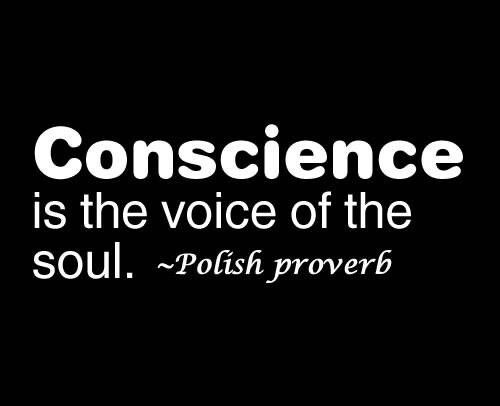
Most of us know what it’s like to hear that quiet voice inside, the one that nudges us when we’re on the verge of a decision, or nags us after we’ve done something we wish we hadn’t. That’s our conscience. But can you trust it? Does it always tell you the truth, or can it be wrong?
Scripture makes it clear that God has given everyone a conscience, an inner sense of right and wrong. In Romans 1:18, we’re told, “The wrath of God is being revealed from heaven against all the godlessness and wickedness of people, who suppress the truth by their wickedness.” Even when people try to ignore what’s right, the truth is still there, and so is the voice that points us to it. I remember when I was a kid, sneaking a cookie before dinner. My mom didn’t see, but I still felt guilty. That was my conscience, already shaped by what I’d learned at home.
But it’s not just our parents who shape our conscience. From the time we’re born, our sense of right and wrong is being developed and influenced—by our families, our teachers, the shows we watch, the music we hear, and now, everything we see and hear on the internet. Sometimes that’s for the good, but sometimes it can take us in the wrong direction. Think about Adam and Eve after they disobeyed God in the garden. In Genesis 3:9, we read, “But the Lord God called to the man, ‘Where are you?’” Adam and Eve hid because their conscience was awakened—they knew they’d done wrong. Their sense of guilt was a signpost, pointing them back to God, but it had also been twisted by fear and shame.
If we’re honest, we know our conscience isn’t always reliable. It can be shaped, numbed, or confused by the world around us. The apostle Paul warned Timothy about this. In 1 Timothy 1:18, he writes, “Timothy, my son, I am giving you this command in keeping with the prophecies once made about you, so that by recalling them you may fight the battle well, holding on to faith and a good conscience, which some have rejected and so have suffered shipwreck with regard to the faith.” Paul knew it was possible for our conscience to become unreliable if we ignore it or fill our minds with the wrong things. I’ve seen this in my own life—times when I convinced myself something was okay because everyone else said it was. But later, after reading God’s word and praying, I realized I’d been tuning out that little voice inside.
That’s where the Holy Spirit comes in. As followers of Jesus, we have the Holy Spirit to inspire and sharpen our conscience, helping us understand God’s word and discern what’s truly right. The more time we spend in Scripture and prayer, the clearer that voice becomes. Sometimes it’s a gentle reminder; other times, it’s a strong warning. But it always lines up with God’s truth. I’ve noticed that when I’m reading the Bible regularly, my conscience is more sensitive, more tuned in to God’s way of thinking. When I’m not, it’s easy to drift and justify things I shouldn’t.
Your conscience is that little voice that speaks up before you do something, or that gnaws at you after you’ve done it. Sometimes it’s loud, sometimes it’s just a whisper. But because it’s shaped by so many outside influences, it’s not a perfect guide on its own. The only way to be sure you can trust it is to keep it anchored to something solid. That’s why we need to stay in the word of God. The more you fill your mind and heart with His truth, the more you can trust that inner voice—because it’s being inspired by the Holy Spirit, not just by your upbringing, your friends, or what’s trending online.
So can you trust your conscience? You can—if you let God shape it. Next time you feel that nudge, take a moment to check: does this line up with what God says in His word? Am I listening to the Holy Spirit, or just to myself and the world around me? When your conscience is shaped by God’s truth, you really can trust it—and you’ll find it leading you closer to the life He wants for you.